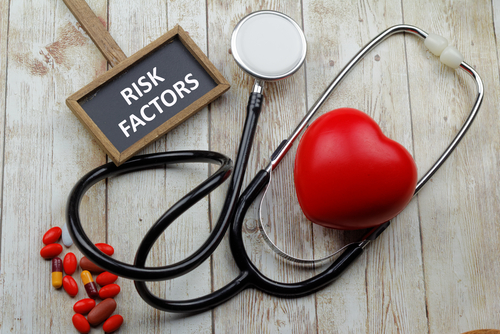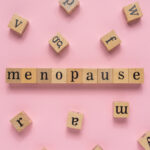Rethinking your Relationship with Alcohol
Stacey J. Drubner, JD, LICSW, MPH

EAP Ask the Expert: John Kelly, PhD, Massachusetts General Hospital, Founder & Director – Recovery Research Institute, & the National Center on Youth Prevention, Treatment, & Recovery, Associate Director – Center for Addiction Medicine.
It’s that time again, when hope springs eternal and we have the best intentions about making improvements. Previously, we have posted about focusing less on resolutions and more on establishing a solid realistic plan to implement healthy habits for lasting change.
About 19% of Americans report that they drink more than they should. If one of your goals for 2025 includes readjusting your routines around drinking, consider the Dry January Movement out of the UK. This self-directed program challenges participants to get a jump start on changing unhealthy drinking habits with a commitment to 31 days alcohol-free. Research shows that those who use the program tools for a month report healthier alcohol use and a greater sense of well-being after 6 months.
In addition to the potential health benefits discussed below, you will likely save money if you are spending less on alcohol and may gain some new hobbies.

Our expert John Kelly, from MGH Addiction Medicine is back to help us understand how to go about changing our relationship with alcohol and why trying Dry January (or any month) can support improvements to well-being. *
The Connection Between Alcohol & Health
John indicates that if you are using alcohol regularly or “more than a little bit,” you will likely experience health benefits from stopping or cutting back. Some potential areas of impact include cardiovascular and liver functioning, sleep, energy level, mood, and cognition.
For many years, conventional wisdom was that low to moderate use of alcohol could increase life span or had protective effects for medical conditions such as heart disease or cognition. Recent studies, however, have revealed that previous research was flawed due to a failure to consider other contributory healthy lifestyle behaviors. Today, there is no consensus on health benefits from consuming alcohol. What is clear is that the risk of negative outcomes increases with heavy or regular use of alcohol and health benefits are typically greatest for those who don’t drink at all. As covered in another EAP feature with John, women seem to have more negative health impacts from alcohol, even with lower consumption.
Here is a summary of some of the risks associated with alcohol use:
Cancer
Cancer has a connection to drinking, with the CDC reporting 20,000 alcohol-related cancer deaths a year. The Surgeon General released an advisory about the risk of alcohol on cancer prevalence. Some commonly affected area include:
- Mouth, throat, larynx
- Esophagus
- Colon, rectal
- Liver
- Breast

Heart Health
Evidence is inconclusive with risks related to lighter consumption, but research shows clear heart, blood pressure and stroke impacts from heavy or regular drinking.
Liver Diseases
There are many alcohol-related effects on the liver. Of the approximately 100,000 liver disease deaths among people ages 12 and older in 2022, 46.0% involved alcohol.
Longer-term use can lead to:
- Liver cancer
- Alcohol related liver disease
- Cirrhosis
Chronic use is the most troubling but excessive short-term drinking can also overwhelm and harm the liver.
Weight management
Although there is not yet a clear direct causal link between alcohol and weight gain, there are connections between consumption and lifestyle habits (poor diet) that can lead to weight gain. Alcohol has no nutritional benefit, but contains 7 calories a gram, so it goes in the category of wasted calories.
Mental health
In previous features, we have covered the connection between alcohol and depression. Initially, alcohol can provide a bump up in mood, but in the long run, it can lead to a negative impact on coping and functioning. Research shows the benefit of not drinking at all or moderating drinking on mental health.
Sleep
Drinking alcohol results in interrupted and sub-par sleep. While alcohol may help you to relax and fall asleep, inevitably it has negative effects on the sleep architecture – how your body cycles through the four necessary stages of sleep. Many of our other features have discussed the downstream effects (sub-par eating, blood sugar, mood) of unhealthy sleep patterns, which can lead to longer term issues, such as diabetes and problems with weight management.
How to Cut Back or Stop Using Alcohol
John recommends these important initial steps to make this process successful:
- Do an assessment of your drinking to gage where you stand
- Consider why you drink and why you want to stop or reduce your intake of alcohol
- What need(s) does drinking fill?
- Be concrete about what you hope to accomplish and how
- In advance, schedule specific intervals to evaluate your progress and how to best meet your goals

Is the plan to stop drinking altogether or just cut back?
This decision will depend on your personal health situation and reasons for addressing your alcohol use. John cautions that cutting back can be challenging to sustain. If you keep the same routines (including social group and habits), behaviors and desires, it makes it harder – though certainly not impossible – to maintain the reduction.
Whichever path you choose, be specific about your goals. For example:
- Simply no alcohol at all
- Having X number of drinks per week and no more than X per day
- Drinking only on X days per week or just on weekends or never on consecutive days
What time period will you commit to?
The official Dry January Program sets a goal of 31 days alcohol-free. John points out that 31 days is somewhat arbitrary but a good starting point. If you can make it a month, then you have a good foundation for success. Research is a bit variable about how long it takes to make lasting change. It depends on the habit and surrounding circumstances. In the case of alcohol, you need time to:
- Give your body & brain a break from alcohol & it’s effects, allowing your body to recalibrate
- Reprogram triggers, cues & routines
- Find substitute behaviors & coping mechanisms

Identify Supports & Potential Vulnerabilities
- Consider enlisting a buddy to join you in the program – this increases the chance of success
- If doing the program alone, line up someone you can call or text to keep you on track if you need support
- Decide how/if to disclose your Dry January intentions to friends – this might help to avoid peer pressure or recruit a buddy
- Fill the coping void – based on what you identified about reasons why you use, figure out a plan for satisfying those needs with alternative activities and other ways to unwind or relax. Here are some suggested areas of focus:
- General well-being
- Healthy Eating
- Mindfulness
- Exercise, such as yoga or tai-chi
- Start a different activity – a new evening class or hobby
- Enhanced social connections
- Find alternative or substitute drinks to mirror the sensation of drinking alcohol
- Don’t commit to too many changes at once
- Take advantage of online support to maintain your program & goals:
NIAAA – Rethinking Drinking – Assess and Change Risky Drinking Habits

Plan for Challenges
Understand risks related to stopping
While there is no one who cannot or should not cut back on drinking, those who are heavy drinkers or have any level of dependence should cut back carefully and be aware of possible side effects (listed below). Consult with your provider if you have any concerns or might benefit from assistance with the physical and psychological effects of stopping or cutting back. These will generally stop within a week or so but initially can include:
- Interrupted sleep
- Sweating
- Nausea
- Headache
- Shaking
- Rebound effects – anxiety, increased energy/feeling agitated
If you fail to meet your goals
John emphasizes that modifying alcohol or drug use can be challenging, particularly if they are part of a long-term routine. If you go off your program, pick yourself up and start over. One or two lapses shouldn’t keep you from meeting your goals. Get back on track. Every day that you do succeed is a bonus.
Faltering does not necessarily mean you have a problem. It might be bad timing, or you might need more or different supports. If this is not a good time, pick up this resolution when you are ready. Otherwise:
- Be kind to and remind yourself that change is hard
- Revisit your goals and reasons for stopping or cutting back
- Take stock of what has worked or helped you stay on track
- What positive effects have you realized so far?
- Make adjustments in supports and routines as necessary
- Benchmark with others in your population (gender, age) to be aware of a healthy baseline
- Reach out for help if you need it from a friend, the EAP or you medical provider
Resources
- Mass General Brigham EAP – Information on Alcohol
- MGH Recovery Research Institute
- Self-help Supports
- Resources for Substance Misuse in Healthcare Workers
- Help for those Coping with Substance-misuse in a Loved one
Other EAP News Features on Alcohol & Drugs
- Is Marijuana as Safe as you Think it is?
- Young People are at High Risk for Opioid-Related Overdose
- The Drawbacks of Using Alcohol to Cope
- Women are more at Risk for Health Consequences of Drinking
Help from the EAP
The EAP offers free and confidential services for employees and immediate household family members. EAP records are separate from medical and HR records. Contact the EAP at 866-724-4327 or request an appointment via our online form for confidential assistance. In-person appointments are available at the following locations. Phone or Video (Zoom) appointments are available from all locations.
* The content in this news feature is intended for informational purposes and is not meant to provide any specific clinical guidance. Every health care situation is unique and best addressed in consultation with your provider.







